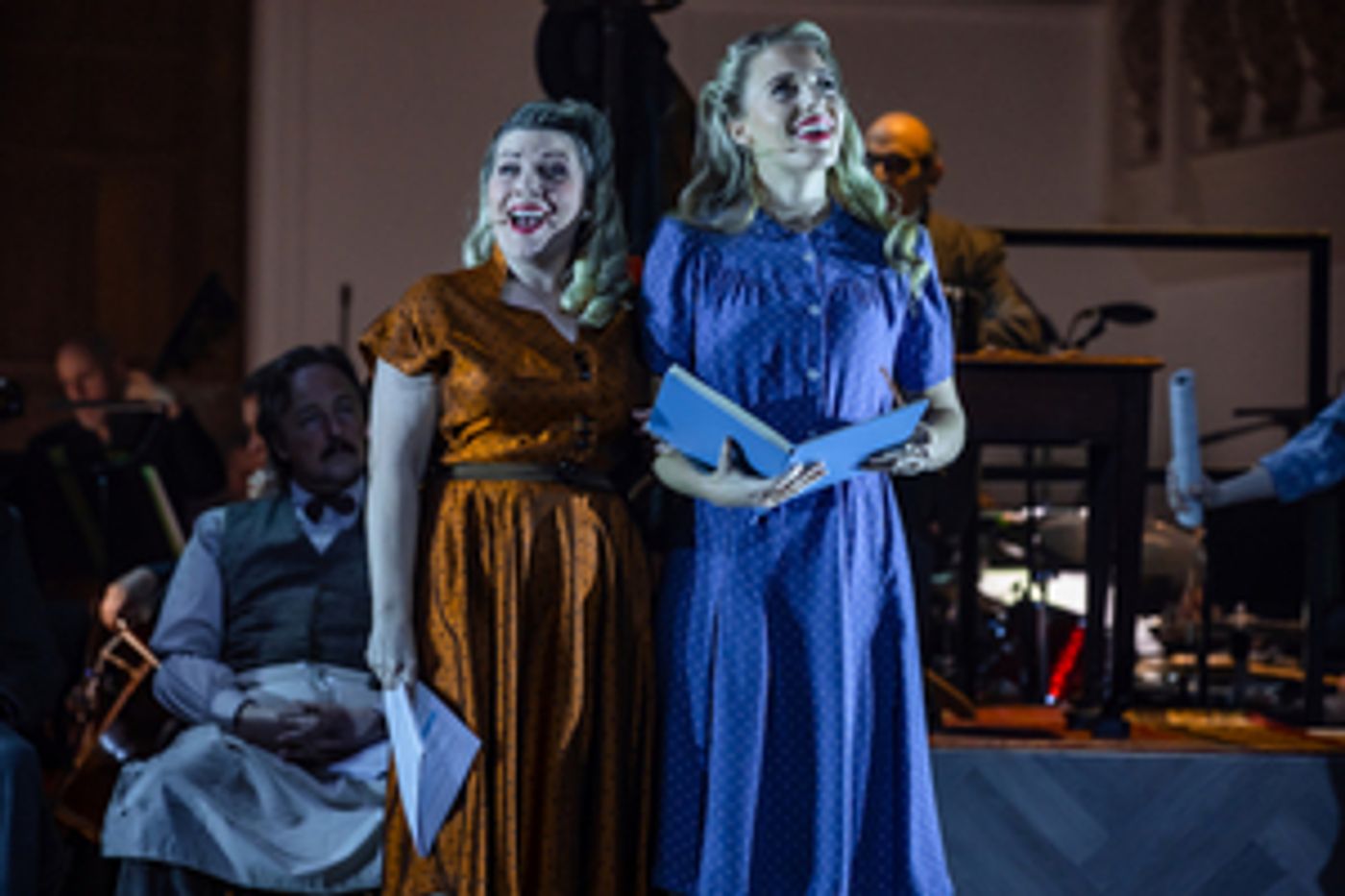Review: MIMMA, Cadogan Hall
The new WWII-set musical was performed for one night only.

![]() When it comes to a topic as over-saturated in theatre and in culture more generally as the Second World War, there is something to be said for productions that take a new approach.
When it comes to a topic as over-saturated in theatre and in culture more generally as the Second World War, there is something to be said for productions that take a new approach.
The members of the Italian resistance against Mussolini who came to London in hope of safety in the years preceding the conflict may not be the first wartime narratives that spring to mind, but the new British-Australian musical Mimma, performed for one night only at Cadogan Hall, puts them front and centre in its depiction of people caught between divided allegiances to their family, country, and ideology.
Mimma tells the story of the eponymous journalist from Turin (Celinde Schoenmaker, on fine classical crossover form), who emigrates to London to stay with her uncle Lorenzo (Phantom star John Owen-Jones), an established nightclub owner in Soho (at that time, he claims, "half of Soho is Italiano") living blissfully unaware of the rise of fascism back home. Mimma befriends Sarah (Louise Dearman), a local jazz singer struggling with her own grief regarding her fiancé serving in the Navy.
The musical's Australian composer and librettist, Ron Siemiginowski and Giles Watson, both have documented interests in the cultural history of the Second World War (Watson wrote a doctoral thesis on the topic), and this shines through in their attention to historical detail. Lorenzo is depicted as a member of the real-life Italian Club on Charing Cross Road, an immigrants' enclave which teetered uncomfortably close to fascist sympathies, and the tragic 1940 sinking of the SS Arandora Star, a ship deporting interred Italian and German 'enemy aliens' to Canada, forms the lynchpin of the narrative.
Amidst a complex and politically charged story, throughout the show Siemiginowski and Watson do an admirable job of maintaining the show's emotional core: the friendship between Mimma and Sarah. There is a timeless quality in how the pair's duets and duologues move from casual gossip, to an idyllic introduction to Sarah's favourite places in London, to their inevitable clash when both women are compelled to choose between their loyalties to their countries and their friendship, as Mimma risks internment for her Italian immigrant status.
Though the interval causes an awkward uncertainty around the pair's reconciliation (one wonders how Sarah got from arguing with Mimma in Act One to acting as a witness in her trial in Act Two), it is ultimately refreshing to see a complex and evolving female friendship take centre stage.
Watson's libretto is strongest when depicting this friendship, and when depicting the war's effect on civilians in general (Mimma's brother Aldo's line "They deprive half the world of a reason for living" is especially memorable), but occasionally strikes a somewhat bland tone - "there are rumours of blackouts, and Russians, and war" does not quite rise to the challenge of its foreboding moment in Siemiginowski's score.
Still, the music as a whole deftly balances an eclectic range of influences. Aldo's (Ashley Riches) 11th-hour baritone laments reminiscent of 19th-century opera, sung both in English and Italian, coexist neatly with Sarah's nostalgic wartime jazz (helped greatly by Dearman's husky, versatile voice), while Steve Serlin's Jewish Cockney art dealer provides much-needed comic musical theatre relief (one wonders, however, how far the decision to write a Jewish character with plotlines revolving around bribery and fraud veers into the territory of antisemitism).
Within the confines of its concert setting and the narrow stage of Cadogan Hall, Mimma is remarkably imaginative with its staging. A well-rounded ensemble provides a host of lively dance numbers for the many scenes taking place in nightclubs, most notably the battle of the sexes number "Know That You Love Me", and a flash-forward to a mourning scene aboard the SS Arandora Star makes a memorable opening tableau.
In an attempt to create a set where none is available, an imperious Sir David Suchet (as Mimma's godfather Alfredo) narrates proceedings from a raised pulpit. Having so much going on in such a small space can occasionally feel overwhelming, though, and one wishes certain emotional scenes had slightly more space to breathe.
Similarly, the domineering artworks projected as a makeshift backdrop behind the orchestra feel like another distraction from the stage (especially when these involve photos of actual concentration camp survivors, a decision which feels on-the-nose and exploitative), and in some particularly operatic arias these could usefully be replaced by surtitles, given how often mic issues and the presence of an orchestra on stage threatened to overwhelm the lyrics.
Mimma suffers occasional teething issues with its staging and sometimes its content, but ultimately is a piece that is ambitious both musically and in its narrative, which shines a new light on an overdone chapter of European history.
Photo credit: Danny Kaan
Reader Reviews
Videos

